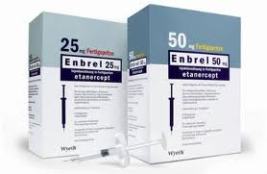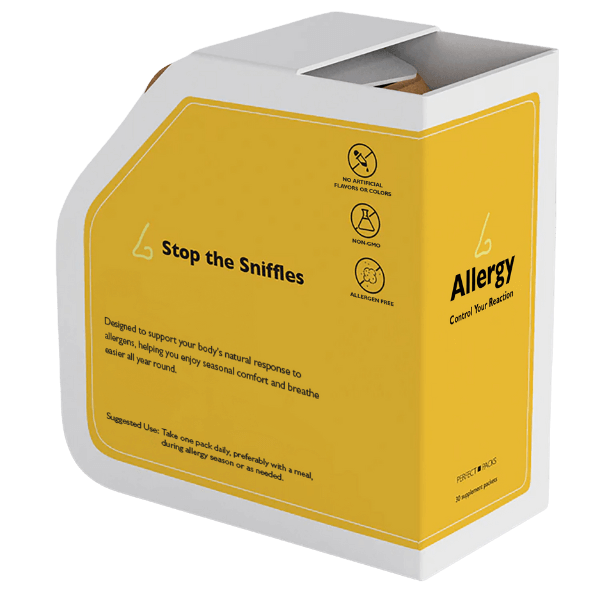Enbrel (generic name: etanercept) is a biologic medication used to treat several autoimmune diseases, including
rheumatoid arthritis,
psoriatic arthritis,
ankylosing spondylitis, and
plaque psoriasis.
Etanercept belongs to a group of medicines called
tumor necrosis factor (TNF) inhibitors. It works by blocking the action of TNF, a protein in the immune system that causes inflammation and tissue damage in autoimmune disorders. By reducing TNF activity, Enbrel helps
decrease joint pain, stiffness, swelling, and skin lesions caused by excessive immune system activity. As a biologic therapy, it is injected under the skin and used long-term to manage chronic inflammatory conditions. Read more details at
MedlinePlus.
Usual dosage
It is important to follow the dosage instructions printed on the label of the box.
Enbrel is given by subcutaneous injection. For adults with rheumatoid arthritis, psoriatic arthritis, or ankylosing spondylitis, the recommended dose is
50 mg once weekly.
In plaque psoriasis, treatment may start with
50 mg twice weekly for 12 weeks, followed by
50 mg once weekly.
For children with juvenile idiopathic arthritis or pediatric plaque psoriasis, the dose is based on body weight (typically
0.8 mg/kg once weekly, up to a maximum of 50 mg). Injections are administered into the thigh, abdomen, or upper arm, with rotation of injection sites to avoid skin irritation.
If a dose is missed, administer it as soon as remembered unless it is close to the next scheduled dose.
Do not double dose to make up for a missed dose.
Important: therapy should be continued regularly, even if symptoms improve, unless advised otherwise by a healthcare provider.
Standard storage
Store Enbrel in the refrigerator at
2 °C to 8 °C (36 °F to 46 °F). Do not freeze. Protect from direct light.
If needed, Enbrel may be kept at room temperature (up to
25 °C / 77 °F) for up to 14 days; once removed from the refrigerator, it must not be returned. Keep syringes and autoinjectors out of reach of children. Do not use after the expiry date, which refers to the last day of the printed month.
This text is for informational purposes only. Please consult a doctor or pharmacist before using any medication.
The information leaflet that comes with the medication includes full information about possible side effects. Be sure to read and understand these, and if there are any questions, discuss these with a healthcare provider.
If a sudden allergic reaction occurs after taking Enbrel, such as swelling of the face, tongue, or throat; difficulty breathing; hives; or severe rash, seek emergency medical care immediately.
Enbrel should only be used during pregnancy or breastfeeding if clearly needed and after discussion with a healthcare provider, as effects on the baby are not fully known. Women of childbearing potential should discuss contraception and family planning with their doctor before starting treatment.
Most people taking Enbrel do not experience severe side effects. Commonly reported effects include:
- Injection site reactions (redness, pain, itching)
- Respiratory infections
- Headaches
- Dizziness
- Rash.
Serious risks include increased susceptibility to infections (tuberculosis, fungal, or viral).
Any new or worsening symptoms should be reported promptly to a healthcare provider.
Etanercept is used to treat several autoimmune and inflammatory conditions.
- In rheumatoid arthritis, it reduces joint inflammation, stiffness, and damage.
- In psoriatic arthritis, it helps with both joint and skin symptoms.
- In ankylosing spondylitis, it decreases spinal stiffness and pain.
- In plaque psoriasis, it reduces the size, thickness, and redness of skin plaques.
- It is also prescribed for juvenile idiopathic arthritis in children.
Symptoms of these conditions include chronic pain, swelling, fatigue, limited movement, and in psoriasis, scaly red skin patches. By reducing TNF activity, Enbrel helps control these symptoms and improve quality of life.












